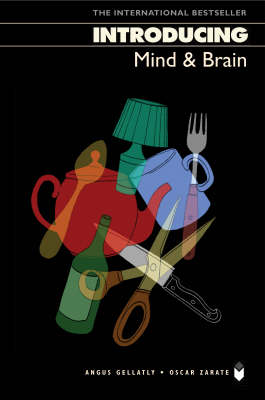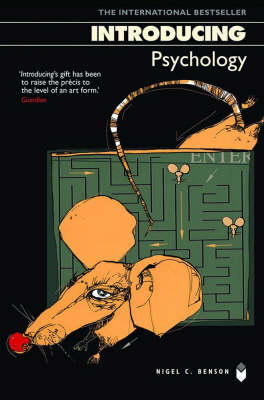Introducing...
3 total works
This book examines a profound and mysterious puzzle: how does the biological tissue that makes up the brain give rise to the activities that our culture refers to as 'the mind'? How does the three pounds of electric sponge stowed in the top of your head allow you to experience enchantment in front of the evening landscape, and then make you remember the shopping, say 'Damn!' and head off to the supermarket? It explains what the sciences have to say about planning and action, language, memory, attention, emotions and vision. It traces the historical development of ideas about the brain and its function from antiquity to the age of neuro-imaging. Through a clear combination of words and images, the reader is invited to take a fresh look at the nature of mind, consciousness and personal identity.
What is psychology? When did it begin? Where did it come from? How does psychology compare with related subjects such as psychiatry and psychotherapy? To what extent is it 'scientific'?
Introducing Psychology answers all these questions and more, explaining what the subject has been in the past and what it is now. The main 'schools' and the sections within psychology are described, including Introspection, Bio-psychology, Psychoanalysis, Behaviourism, Comparative (Animal) Psychology, Cognitive Approaches (including the Gestalt movement), Social Psychology, Developmental Psychology and Humanism.
The key figures covered include: Freud, Pavlov, Skinner, Bandura, Piaget, Bowlby, Maslow, Rogers, as well as many lesser-known but important psychologists. The book explains psychology as taught in schools, colleges and universities, and also sets it in a broader context, considering philosophical and social issues that concern all human beings today.
Introducing Psychology answers all these questions and more, explaining what the subject has been in the past and what it is now. The main 'schools' and the sections within psychology are described, including Introspection, Bio-psychology, Psychoanalysis, Behaviourism, Comparative (Animal) Psychology, Cognitive Approaches (including the Gestalt movement), Social Psychology, Developmental Psychology and Humanism.
The key figures covered include: Freud, Pavlov, Skinner, Bandura, Piaget, Bowlby, Maslow, Rogers, as well as many lesser-known but important psychologists. The book explains psychology as taught in schools, colleges and universities, and also sets it in a broader context, considering philosophical and social issues that concern all human beings today.
Introducing Graphic Guide box set - Know Thyself
by David Papineau, Angus Gellatly, and Nigel Benson
Published 6 September 2012
Using graphic novel-style illustration combined with accessible but authoritative text, the Introducing Graphic Guide series is a uniquely brilliant way to get your head around some of humankind's most thrilling ideas.
Introducing Consciousness: What have zombies, Chinese Rooms, ghosts in machines and Schrodinger's cat go to do with consciousness? Modern science may have split the atom and solved the mystery of life, but it has yet to explain the source of conscious feelings.
Introducing Psychoanalysis offers new insights into the nature of psychoanalytic theory and original ways of describing therapeutic practice. How do psychoanalysts conceptualize the mind? Why was Freud so interested in sex? Is psychoanalysis a science? How does analysis work?
Introducing Psychology: A fascinating guide to the whole subject of psychology - an ideal introduction for anyone interested in why we do what we do and think what we think. What is psychology? When did it begin? Where did it come from? How does psychology compare with psychiatry and psychotherapy? Is it scientific?
Introducing Consciousness: What have zombies, Chinese Rooms, ghosts in machines and Schrodinger's cat go to do with consciousness? Modern science may have split the atom and solved the mystery of life, but it has yet to explain the source of conscious feelings.
Introducing Psychoanalysis offers new insights into the nature of psychoanalytic theory and original ways of describing therapeutic practice. How do psychoanalysts conceptualize the mind? Why was Freud so interested in sex? Is psychoanalysis a science? How does analysis work?
Introducing Psychology: A fascinating guide to the whole subject of psychology - an ideal introduction for anyone interested in why we do what we do and think what we think. What is psychology? When did it begin? Where did it come from? How does psychology compare with psychiatry and psychotherapy? Is it scientific?


